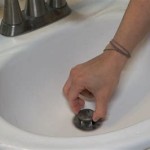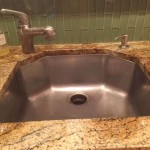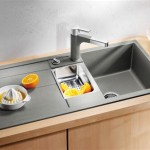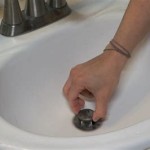Quartz Sinks vs. Granite Sinks: A Comprehensive Guide
When renovating or building a kitchen, choosing the right sink is a crucial decision that impacts both functionality and aesthetics. Quartz and granite sinks are popular options, each boasting its own unique advantages and disadvantages. Understanding the key differences between these materials helps homeowners make an informed choice that aligns with their needs and preferences. This comprehensive guide explores the pros and cons of quartz and granite sinks, providing insights into their durability, appearance, maintenance, and cost.
Durability and Resistance
Quartz sinks are engineered from a mixture of crushed quartz crystals and resin, creating a highly durable and scratch-resistant surface. They excel in resisting chips, stains, and heat, making them suitable for demanding kitchen environments. Granite sinks, on the other hand, are crafted from natural stone, offering a robust and elegant option. While granite is inherently strong, it is more susceptible to scratches and etching, particularly from acidic substances like lemon juice. This susceptibility can be reduced by sealing the granite regularly.
Appearance and Style
Quartz sinks offer a wide range of color options, enabling homeowners to easily find a sink that complements their existing kitchen design. From classic white to bold blacks and vibrant hues, quartz sinks provide versatility in matching various countertop materials and cabinetry. Granite sinks, while limited in color options, boast natural veining and patterns that create a unique and timeless aesthetic. These intricate formations add depth and character to any kitchen.
Maintenance and Care
Quartz sinks are generally easier to maintain than granite sinks. Their non-porous surface prevents the absorption of stains, making cleaning a breeze. A simple soap and water solution is usually sufficient for regular cleaning. Granite sinks, due to their porous nature, require more attention to prevent staining. Regular sealing is necessary to protect the surface from spills and acidic substances. Proper maintenance involves wiping down the sink after each use and applying a sealant every few months.
Cost and Value
Quartz sinks often come at a higher price point than granite sinks. The manufacturing process of quartz involves blending quartz crystals with resin, leading to a more expensive material compared to natural granite. However, the long-term durability and low maintenance of quartz sinks potentially make them more cost-effective over time. Granite sinks, while offering a more affordable initial cost, may require more frequent sealing and repairs, resulting in potential long-term expenses.
Choosing the Right Sink
The selection of quartz or granite sinks depends on individual needs and priorities. For those seeking a highly durable, scratch-resistant, and low-maintenance option with a wide color palette, quartz sinks are an excellent choice. However, if budget is a primary concern and a natural stone aesthetic is desired, granite sinks offer a more affordable and visually appealing alternative. Ultimately, careful consideration of the pros and cons of each material, coupled with personal preferences and kitchen design, ensures a well-informed decision.

What Is The Difference Between Quartz Composite Sink And Granite

Pros And Cons Of Granite Quartz Sinks Selection

Pros And Cons Of Granite Quartz Sinks Selection

Granite Vs Quartz Surface Countertops What Is The Difference

Granite Sinks Or Quartz Everything You Need To Know

Granite Vs Quartz A Bathroom Countertop Comparison

Pros And Cons Of Quartz Sinks For Kitchens Angi
.jpeg?strip=all)
Granite Sink Vs Stainless Steel Futura Kitchen Sinks

Undermount Vs Drop In Sinks Complete Guide Ruvati Usa

Quartz Kitchen Sinks The Right Choice For You







